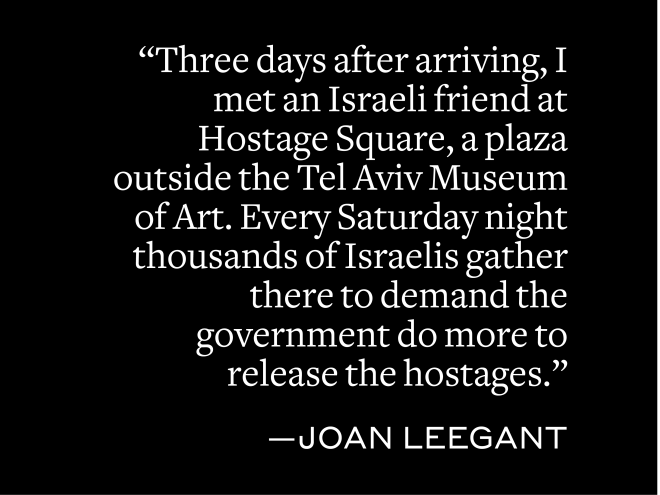Joan Leegant’s latest award-winning book, Displaced Persons, is a page-turning collection with vivid Jewish characters whose loves, fears, and experiences will be relatable to readers. The book is divided into two sections, with half the stories taking place in Israel and the other half in the United States.
In two stories in the first half of the book — “The Baghdadi” and “Beautiful Souls” — Leegant’s characters push against conventions of religion and gender. In “The Baghdadi,” the oldest Jewish man in Baghdad has been brought to Israel by Americans and placed in an old folks’ home, supposedly for his own safety. The man soon becomes sick and lacks the right medical care. In Iraq, his neighbors, who were all Muslim, had cared for him and “treated him like one of their own.” The narrator explains that Iraq is the oldest Jewish community in the world outside of Israel. Sometimes, the narrator goes on, certain political choices — like making Israel or the United States seem heroic — have impacts on everyday people and families that aren’t always visible or understood.
A similar misunderstanding occurs in “Beautiful Souls,” when two American teenage girls wander through the stalls of the Arab shuk in Jerusalem’s Old City before entering a restaurant down an alley. The girls point out that “they were supposed to not be afraid of the Arabs or think poorly of them. All week their parents had talked with them about the plight of the Palestinians and the failed leadership on both sides and the irrational hatred of the “other” that was everywhere in this world, responsible for so much suffering.” Despite their intentions and open-mindedness, when one of the girls is sexually harassed by Arab men, the girls experience a rift in their emotions, and a lack of communication causes one girl to shut down and distance herself from her friend.
In each story, the characters are deeply influenced by their Jewish identity, but they also confront larger issues of belonging. Several of the stories in the second half of the book revolve around individuals whose actions change their family dynamics. In “Roots,” a child has continual run-ins with the law; in “After,” a young person struggles with mental illness and exhibits extreme behavior. In these and other stories, children become adults, and readers see how traumatic experiences of the past can affect relationships in the present.
The characters in each story rethink and refine their place in the world. Leegant’s beautiful style compels us to think about them long after we’ve finished reading.
Jamie Wendt is the author of the poetry collection Laughing in Yiddish (Broadstone Books, 2025), which was a finalist for the 2022 Philip Levine Prize in Poetry. Her first book, Fruit of the Earth (Main Street Rag, 2018), won the 2019 National Federation of Press Women Book Award in Poetry. Her poems and essays have been published in various literary journals and anthologies, including Feminine Rising, Catamaran, Lilith, Jet Fuel Review, the Forward, Minyan Magazine, and others. She contributes book reviews to the Jewish Book Council. She won third prize in the 2024 Reuben Rose Poetry Competition and won second prize for the 2024 Holloway Free Verse Award through the Illinois State Poetry Society. Wendt holds an MFA in Creative Writing from the University of Nebraska Omaha. She lives in Chicago with her husband and two kids. Follow her online at https://jamie-wendt.com/ or on Instagram @jamiewendtpoet.





